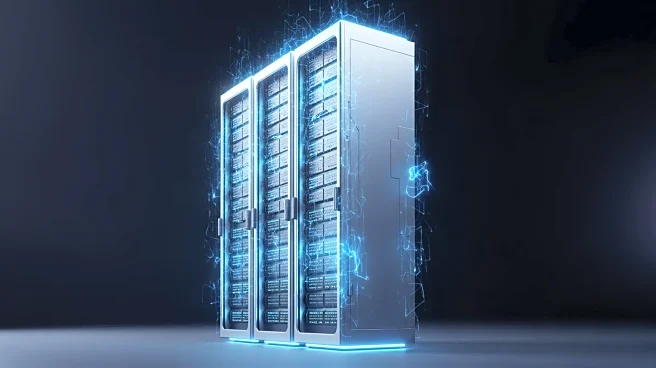What's Happening?
Data centers are projected to significantly increase their consumption of U.S. electricity, rising from 4.4% in 2023 to between 6.7% and 12% by 2028. This surge is largely driven by the expansion of AI
and cloud computing technologies, with major tech companies like Meta and Microsoft investing heavily in data center infrastructure. The increased demand for electricity is contributing to higher costs, particularly in regions near these centers, where prices have risen by as much as 267% over the past five years. The Department of Energy and industry experts highlight the need for substantial investment in electricity generation and transmission to accommodate this growth.
Why It's Important?
The rising energy consumption by data centers has significant implications for the U.S. economy and energy infrastructure. As tech companies continue to expand their AI capabilities, the demand for electricity is expected to outpace previous levels, necessitating upgrades to the power grid. This could lead to increased electricity costs for consumers, particularly in areas close to data centers. The situation underscores the need for strategic planning and investment in renewable energy sources to mitigate the impact on the environment and ensure sustainable growth in the tech sector.
What's Next?
The ongoing expansion of data centers will likely prompt further investment in electricity infrastructure to meet the growing demand. Policymakers and industry leaders may need to explore regulatory measures to ensure that the costs associated with increased energy consumption do not disproportionately affect consumers. Additionally, tech companies might focus on developing more energy-efficient technologies and practices to reduce their environmental footprint and manage operational costs.
Beyond the Headlines
The rapid growth in data center energy consumption raises ethical and environmental concerns, particularly regarding the sustainability of tech-driven economic growth. As AI technologies become more sophisticated, the need for energy-efficient solutions becomes critical to balance technological advancement with environmental stewardship. This development could also influence public policy debates on energy consumption and climate change, pushing for more aggressive adoption of green technologies.









